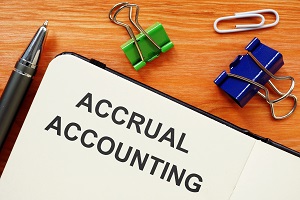Modified accrual accounting is a powerful financial tool that enables organizations to effectively manage their financial resources. By combining elements of cash basis accounting and accrual accounting, it provides a comprehensive view of an organization’s financial position. This article explores the benefits and applications of modified accrual accounting in finance, highlighting its relevance in various sectors and its impact on decision-making processes. From government entities to nonprofit organizations, understanding the power of modified accrual accounting can lead to more informed financial strategies and improved resource allocation. Let’s delve into the intricacies of this accounting method and discover its potential for driving financial success.
Table of Contents
- The Fundamentals of Modified Accrual Accounting
- Applications of Modified Accrual Accounting
- Benefits of Modified Accrual Accounting
- Enhanced Decision-Making with Modified Accrual Accounting
- Compliance and Regulation
- Challenges and Limitations
- Implementing Modified Accrual-Accounting Systems
- Overcoming Challenges in Modified-Accrual Accounting
- Conclusion
The Fundamentals of Modified Accrual Accounting
Modified accrual accounting follows the principles of accrual accounting but introduces certain modifications to cater to the specific needs of organizations. Unlike cash basis accounting, which only records transactions when cash is received or paid, modified accrual accounting considers both cash inflows and outflows, as well as the timing of revenues and expenses. By recognizing revenue when it becomes measurable and available and expenses when they are incurred, this accounting method offers a more accurate representation of an organization’s financial activities.
Applications of Modified Accrual Accounting
Modified accrual accounting finds its application in various sectors, including government entities, nonprofit organizations, and certain businesses. In the public sector, governments employ modified accrual accounting to maintain transparency and accountability. This method allows them to accurately track revenue and expenses related to specific funds, such as general funds, special revenue funds, and capital project funds. Nonprofit organizations also benefit from modified accrual accounting as it enables them to demonstrate responsible financial management and effectively communicate their financial position to stakeholders.
Benefits of Modified Accrual Accounting
Modified accrual accounting offers several advantages over other accounting methods. Firstly, it provides a more comprehensive view of an organization’s financial position by considering both cash flows and accruals. This enables better financial planning and decision-making. Additionally, modified-accrual accounting ensures that revenue recognition is tied to the period in which it is earned, leading to more accurate financial statements. Moreover, by tracking expenses as they are incurred, organizations can better manage their resources and control costs. The ability to allocate expenses to specific funds or projects enhances transparency and accountability.
Enhanced Decision-Making with Modified Accrual Accounting
One of the key benefits of modified accrual accounting is its ability to support informed decision-making. By providing a detailed view of an organization’s financial position, this accounting method enables managers to evaluate the financial viability of potential projects or investments. It allows for better forecasting of cash flows and the identification of potential funding gaps. With this information, decision-makers can make informed choices that align with the organization’s financial goals and objectives.
Compliance and Regulation
Modified accrual accounting is often necessary to comply with legal and regulatory requirements. Government entities, in particular, are bound by specific accounting standards that dictate the use of modified accrual-accounting for financial reporting. This ensures consistency and comparability across different government entities. Similarly, nonprofit organizations may be required to adhere to modified accrual-accounting principles as part of their reporting obligations. By adopting this accounting method, organizations can demonstrate their commitment to financial transparency and accountability.
Challenges and Limitations
While modified accrual accounting offers numerous benefits, it is essential to be aware of its limitations and potential challenges. One of the primary challenges is the complexity associated with implementing and maintaining this accounting method. It requires skilled accountants who are knowledgeable about the specific rules and regulations governing modified accrual-accounting. Moreover, the timing of revenue and expense recognition can sometimes be subjective, leading to potential discrepancies. It is crucial to establish robust internal controls and ensure accurate record-keeping to mitigate these challenges effectively.
Implementing Modified Accrual-Accounting Systems
To fully leverage the power of modified accrual accounting, organizations need to implement robust accounting systems that support this method. This involves setting up appropriate software and establishing clear guidelines and procedures for recording and tracking financial transactions. Organizations should invest in training their accounting staff to ensure they have the necessary skills and knowledge to effectively implement and maintain modified-accrual accounting systems. By streamlining the process and ensuring accurate data entry, organizations can maximize the benefits of this accounting method and improve overall financial management.
Overcoming Challenges in Modified-Accrual Accounting
While modified accrual accounting offers significant advantages, organizations may encounter challenges along the way. It is crucial to proactively address these challenges to maintain the integrity and accuracy of financial data. Some common challenges include dealing with complex revenue recognition criteria, managing the timing of expense recognition, and ensuring compliance with relevant accounting standards. Organizations can overcome these challenges by implementing strong internal controls, conducting regular audits, and seeking guidance from accounting professionals. By proactively addressing challenges, organizations can mitigate risks and ensure that modified accrual-accounting remains a powerful tool in their financial management toolkit.
Conclusion
Modified accrual accounting is a powerful financial tool that provides organizations with a comprehensive view of their financial position. By combining the best elements of cash basis accounting and accrual accounting, it offers accurate and reliable financial information for decision-making. From government entities to nonprofit organizations, modified accrual-accounting ensures transparency, accountability, and responsible financial management. By understanding the fundamentals and applications of modified accrual-accounting, organizations can harness its power to optimize resource allocation, enhance decision-making, and meet regulatory requirements. As finance continues to play a crucial role in organizational success, embracing modified accrual-accounting becomes increasingly important for staying ahead in today’s dynamic business environment.
Learn about: Maximize your tax savings with our powerful Estimated Federal Taxes Calculator – your ultimate financial planning companion.




